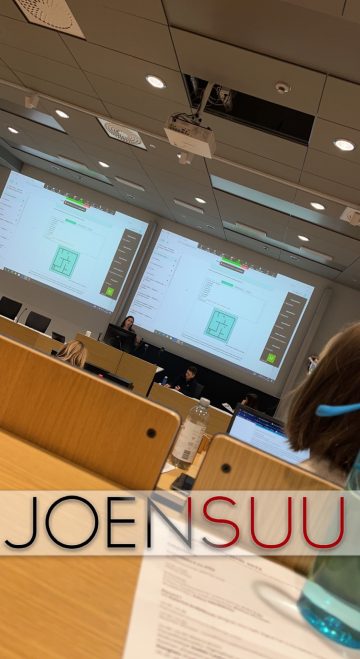Annual Conference of Youth Studies 2022
The XXI Annual Conference of Youth Studies 2022 was held in Joensuu at the University of Eastern Finland in cooperation with the Finnish Youth Research Society. The conference was organized as a hybrid event between the 9th and 10th of November 2022. The theme of the conference was “on-line and off-line: Digitalization and the ‘fresh contact’ generation”.
After the opening words from the organizing body, Katarina Andjelkovic from Belgrad held a plenary speech regarding “Digital Fair in the Balkan Context”.

This was followed by a panel discussion between Heikki Lauha, Mikko Meriläinen, Satu Venäläinen and Mika Pantzar about the digital opportunities of the fresh generations. The day ended with working groups where presentations were held and various topics related to youth and digitality were discussed.
On the second day of the event PAGA researcher Miikka Sokka participated in a working group with the theme of “Young people in gaming cultures”. Four presentations were held in the group and they were followed by comments and discussion led by group chairman Mikko Meriläinen:
- Nadezhda Gerasimenko (Independent researcher): The Impact of Digital Representation on Non-digital Player’s Perception (The Case of «The Sims» Franchise)
- Ana Valeria Rodriguez (Cultural Research Institute of Autonomous Baja California University in México): “Brothers ’till the end” Interaction and interpersonal relationships between video-game player
- Miikka Sokka (University of Turku): Digital Gaming Relationship: Figuring out the subjective significance of digital gaming
- Tiina Auranen (University of Jyväskylä): Using phenomenological analysis to find out the individual meanings of video gaming for young people
The second day and whole event were wrapped up in the afternoon by the second plenary session where Kirsten Drotner discussed “Beyond digital natives and dopamine dupes: whats and hows in digital youth culture” and Sofia Laine discussed “Youth cannot be lived at a distance. Pandemic generation and “fresh take””.
Special thanks belong to the Joint Committee for Nordic research councils in the Humanities and Social Sciences (NOS-HS) for the funding of the participation in this event.